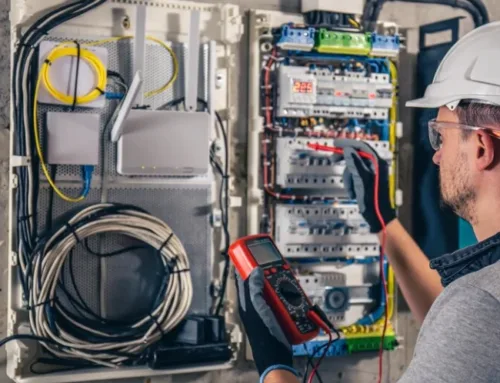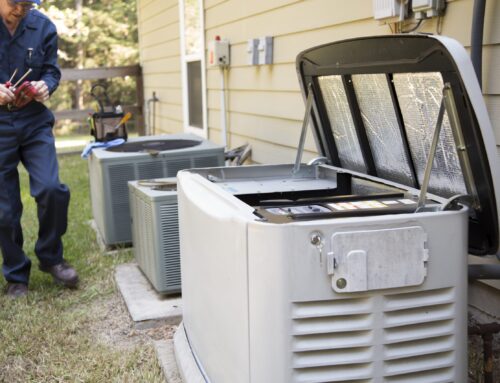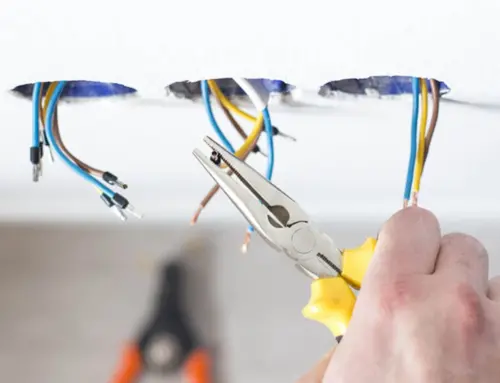We live in a world where electrical appliances have become integral to our daily lives. From the coffee maker that kick starts our mornings to the fridge that keeps our groceries fresh, these devices make life more convenient and efficient. But behind the convenience of these modern marvels lies a complex relationship with environmental sustainability—one that the industry often fails to fully address.
The truth is, while appliances help us live more comfortably, their impact on the environment is significant. Let’s explore the connection between electrical appliances and sustainability, and dive into the aspects that often get glossed over in the industry’s marketing campaigns.
How Do Electrical Appliances Impact Environmental Sustainability?
Electrical appliances, despite their modernity and convenience, contribute to a wide array of environmental challenges. From the energy they consume to the materials used in their production, these appliances leave a substantial environmental footprint. Here’s how they impact sustainability:
- Energy Consumption: Most electrical appliances require significant amounts of electricity to operate, and the sources of this electricity matter. If the electricity comes from non-renewable sources like coal or natural gas, it contributes to greenhouse gas emissions and climate change. Even though more appliances are becoming energy-efficient, the fact remains that the energy they consume adds up over time.
- E-Waste and Landfill Waste: Appliances have a finite lifespan, and many end up in landfills once they’re no longer usable. According to the Global E-waste Monitor, over 53 million metric tons of electronic waste was generated worldwide in 2019. Many of these devices contain hazardous materials such as mercury, lead, and cadmium, which can leach into the soil and water when improperly disposed of, further harming the environment.
- Carbon Footprint: Beyond energy consumption, appliances are manufactured, transported, and eventually discarded, each step contributing to a larger carbon footprint. The extraction of raw materials, the manufacturing process, and transportation all add greenhouse gas emissions to the atmosphere.
- Resource Depletion: The production of electrical appliances involves mining and extracting various metals and materials, some of which are rare and non-renewable. For example, many appliances rely on metals like copper, aluminum, and rare earth elements. The demand for these materials can lead to overexploitation of natural resources, creating environmental damage, such as habitat destruction and soil erosion.
- Water Usage: Some electrical appliances, like air conditioners or washing machines, consume large amounts of water in their operation. While water usage may not be as immediately obvious as energy consumption, it’s a key factor in the sustainability equation, especially in regions facing water scarcity.
While we rely on these gadgets to enhance our daily lives, their environmental impact is significant—and often overlooked.
Why Is Sustainability Often Overlooked in the Electrical Appliance Industry?
Despite growing awareness of environmental issues, sustainability is often sidelined in the electrical appliance industry. Here’s why:
- Profit Margins and Consumer Demand: The primary driving force behind the production of electrical appliances is profit. As a result, manufacturers prioritize cost-cutting and profit maximization over sustainable practices. Consumers, too, often prioritize price and convenience over sustainability when making purchasing decisions, creating little incentive for brands to go above and beyond in their environmental efforts.
- Planned Obsolescence: Many electrical appliances are designed to have a relatively short lifespan. This “planned obsolescence” is a business strategy used to encourage consumers to buy newer models more frequently. The shorter the lifespan, the quicker the cycle of production and consumption, which is beneficial to companies in the short term but problematic for sustainability in the long term. These practices not only lead to more waste but also require the continuous extraction of resources to meet demand.
- Limited Recycling Infrastructure: While some electrical appliances can be recycled, many are not easily recyclable due to the complexity of their components. The recycling infrastructure is also limited in many parts of the world, leading to a significant amount of e-waste ending up in landfills. Until comprehensive recycling programs and policies are implemented on a global scale, many manufacturers lack the incentives to design appliances that are easy to recycle or reuse.
- Lack of Transparency and Greenwashing: Some companies may claim their products are “green” or “eco-friendly” without backing up these claims with verifiable data. This form of greenwashing can mislead consumers into believing they are making sustainable choices when, in reality, the products may have a significant environmental footprint. Without proper regulations and transparency, the industry can continue to overlook sustainability in favor of marketable, profit-driven claims.
- Focus on Function Over Sustainability: In many cases, consumers are more concerned with the function and aesthetics of an appliance rather than its environmental impact. The industry responds by prioritizing design, functionality, and convenience over eco-friendly materials, long-lasting durability, and energy efficiency. This gap between consumer priorities and industry practices has left sustainability in the background.
Despite growing calls for sustainability, these factors prevent the electrical appliance industry from making more significant strides toward being environmentally responsible.
What Role Does Energy Efficiency Play in Sustainable Electrical Appliances?
Energy efficiency is a key component of sustainability in electrical appliances, but it’s not a one-size-fits-all solution. Here’s how energy efficiency plays a crucial role:
- Lower Energy Consumption: Energy-efficient appliances use less electricity to perform the same tasks as their less efficient counterparts. This reduction in energy consumption not only lowers household energy bills but also reduces the overall demand for electricity, thereby decreasing the environmental impact associated with energy production. When appliances are more energy-efficient, they help mitigate the strain on power grids and reduce emissions from fossil fuels.
- Energy Star Ratings: Many appliances now come with energy efficiency labels, such as the Energy Star rating, which helps consumers choose products that are more energy-efficient. These labels take into account the appliance’s energy usage over its lifespan, helping consumers make more informed purchasing decisions.
However, while these ratings are useful, they still represent only one aspect of sustainability. The full life cycle of the appliance, including production, use, and disposal, should be considered when assessing its true environmental impact.
- Smart Technology: Many modern appliances come equipped with smart features that allow them to optimize their energy consumption. For example, smart thermostats can learn your heating and cooling preferences, adjusting the temperature to reduce energy use when you’re away. Likewise, energy-efficient refrigerators and washing machines use sensors to adjust power consumption based on the load size, preventing unnecessary energy waste.
- Renewable Energy Integration: Another way energy efficiency plays a role in sustainability is by encouraging the integration of renewable energy sources into home energy systems. For instance, solar-powered appliances or smart appliances that connect to solar panel systems can help reduce reliance on non-renewable energy sources. These innovations help shift the focus from energy consumption to energy generation, contributing to a cleaner, more sustainable future.
While energy-efficient appliances are a step in the right direction, it’s important to remember that energy efficiency alone cannot solve the broader environmental issues associated with electrical appliances. There’s more to sustainability than simply reducing energy usage.
How Can the Production of Electrical Appliances Affect the Environment?
The production of electrical appliances involves much more than just assembling parts—it has a deep and lasting impact on the environment. Here’s a closer look at how the manufacturing process contributes to environmental degradation:
- Raw Material Extraction: The materials required to manufacture electrical appliances—such as metals, plastics, and rare earth elements—are often extracted from the earth through mining. This extraction process can have severe environmental consequences, including habitat destruction, soil erosion, and water contamination. Additionally, the demand for these materials is rising, putting more pressure on natural resources and leading to unsustainable practices.
- Manufacturing Emissions: The process of manufacturing appliances involves the use of large amounts of energy, often derived from non-renewable sources. Factories release greenhouse gases and other pollutants into the air and water, contributing to global warming and other forms of pollution. The energy-intensive nature of appliance production means that the environmental costs of creating the devices are significant, even before the appliances hit the market.
- Transportation Emissions: After appliances are manufactured, they must be transported to retail locations or consumers’ homes. This transportation process, especially if products are shipped internationally, results in additional carbon emissions. The environmental impact of transportation is often overlooked, yet it’s an important factor in the overall sustainability of electrical appliances.
- Packaging Waste: The packaging used to ship and sell electrical appliances is often excessive and made from materials that are not easily recyclable. This adds to the global plastic waste crisis and creates unnecessary waste in landfills.
The environmental impact of manufacturing is substantial, and it’s an area where the industry could improve by adopting more sustainable practices—such as using renewable energy sources, reducing packaging, and opting for recyclable materials.
Electrical appliances have revolutionized the way we live, but their environmental impact cannot be ignored. While energy efficiency is often touted as the key to sustainability, the full life cycle of these appliances—from production to disposal—reveals that there’s much more to the story. By addressing the overlooked aspects of appliance manufacturing and consumer behavior, we can work toward a more sustainable future.
As consumers, it’s essential to consider not only the efficiency of our appliances but also the long-term impact they have on the environment. By demanding more sustainable products, supporting eco-friendly manufacturers, and embracing responsible disposal methods, we can play a role in making the electrical appliance industry more sustainable for future generations. The industry has a long way to go, but small changes in both consumer habits and manufacturing processes can pave the way for a greener, more sustainable world.
Power Up Your Home or Business with Starnes Electric LLC!
At Starnes Electric LLC, we understand the importance of reliable, safe, and efficient electrical services. Whether you need a simple repair, a full system upgrade, or help with energy efficiency, our skilled team is ready to provide expert solutions tailored to your needs.
Here’s how we can benefit you:
- Reliable and Efficient Service: We prioritize safety and quality in every job we complete. From routine electrical inspections to complex installations, our team ensures that your home or business runs smoothly and efficiently.
- Energy-Saving Solutions: Interested in reducing your energy consumption and saving money on utility bills? Our energy-efficient solutions help optimize your electrical system, making your space greener and more cost-effective.
- Expert Troubleshooting and Repairs: Electrical issues can be tricky, but with our experience, we’ll quickly diagnose and resolve any problems. Whether it’s a flickering light or a power outage, we’ve got you covered.
- Tailored Services for Every Need: From residential to commercial projects, we handle it all. Our services are customized to fit your specific requirements, ensuring that you get the best solution possible.
Contact us today to schedule a consultation and see how Starnes Electric LLC can power your home or business with top-tier electrical services!
.






